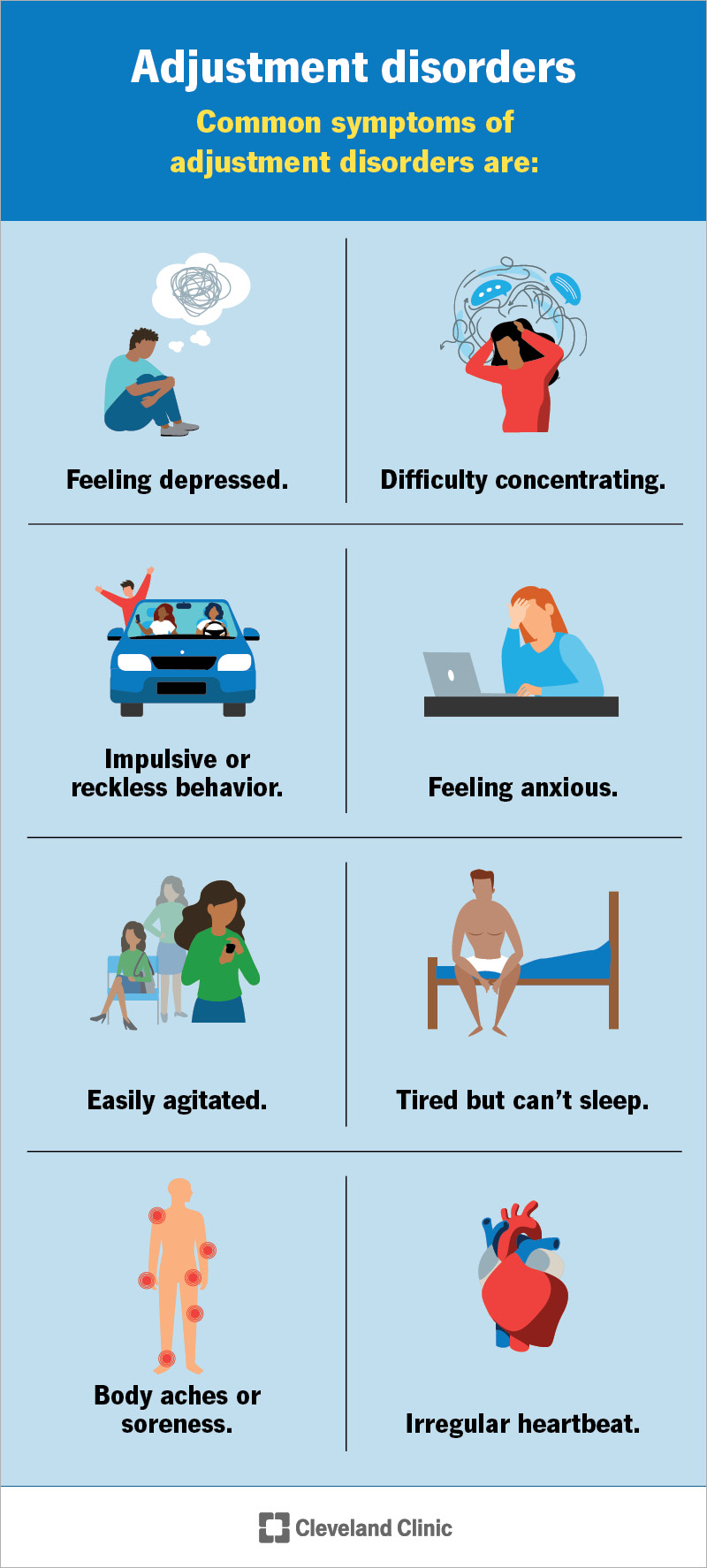What Is Adjustment Disorder: Definition, Symptoms, and Treatment Options
What is Adjustment Disorder?
Imagine you’re a high-achieving college student who’s just been accepted into your dream graduate program, only to find out that your parents are getting divorced. Or, picture this: you’re a dedicated employee who’s been suddenly laid off from a job you loved. These situations can be jarring, leaving you feeling lost, anxious, and uncertain about your future.
For many people, significant life changes like these can trigger a condition known as Adjustment Disorder (AD). Also referred to as situational depression or stress response syndrome, Adjustment Disorder is a common mental health condition that affects millions worldwide.
Adjustment Disorder is a short-term condition that occurs when an individual has difficulty coping with significant stressors or changes in their life. These stressors can be major life events, such as the death of a loved one or a serious illness, or ongoing stressors like chronic illness, financial difficulties, or relationship problems.
The symptoms of Adjustment Disorder can vary widely from person to person but often include:
- Feeling anxious, sad, or hopeless
- Difficulty sleeping or changes in appetite
- Fatigue or low energy
- Difficulty concentrating or making decisions
- Avoiding activities or social situations
- Irritability or mood swings
Sarah, a 35-year-old marketing professional, recently relocated for work. Initially excited about the opportunity, she felt overwhelmed by the stress of a new city, friends, and a demanding job, which led to anxiety and withdrawal from social activities.
Research suggests that up to 50% of individuals experiencing a significant life stressor will develop Adjustment Disorder. Fortunately, it is treatable and can often be navigated with the right support.

Understanding Adjustment Disorder
Have you ever experienced a significant life change that left you feeling overwhelmed or anxious? Perhaps you’ve recently moved, switched jobs, or gone through a breakup. While it’s normal to feel a range of emotions during transitions, some individuals may develop Adjustment Disorder.
Adjustment Disorder, also known as Stress Response Syndrome, is a psychological condition characterized by emotional or behavioral symptoms in response to a significant life stressor. These symptoms can appear within three months of the stressor and typically resolve on their own within six months.
Types of Adjustment Disorder
There are six subtypes, each with distinct characteristics:
- Adjustment Disorder with Anxiety
- Adjustment Disorder with Depressed Mood
- Adjustment Disorder with Mixed Anxiety and Depressed Mood
- Adjustment Disorder with Disturbance of Conduct
- Adjustment Disorder with Mixed Disturbance of Emotions and Conduct
- Unspecified Adjustment Disorder
Treatment and Therapy Options
If you or a loved one is struggling with Adjustment Disorder, it's essential to know that various effective treatment options are available. Psychotherapy, or talk therapy, is commonly used, helping individuals work through their emotions and develop coping strategies.
For effective coping, consider using the tools available on GoblinX to support your mental health journey. GoblinX also offers resources for managing anxiety and symptoms related to ADHD, enhancing your ability to cope during stressful life changes.
Other effective strategies include medications for specific symptoms, lifestyle changes like exercise and mindfulness, and developing a strong support network.
Self-Care and Prevention Strategies for Adjustment Disorder
Incorporating self-care into your daily routine can reduce the risk of developing Adjustment Disorder. Practice stress management techniques, maintain a healthy lifestyle, engage in relaxation techniques, and seek professional help when needed.
For additional support, visit the GoblinX website for resources that can assist in coping with Adjustment Disorder and other mental health challenges.